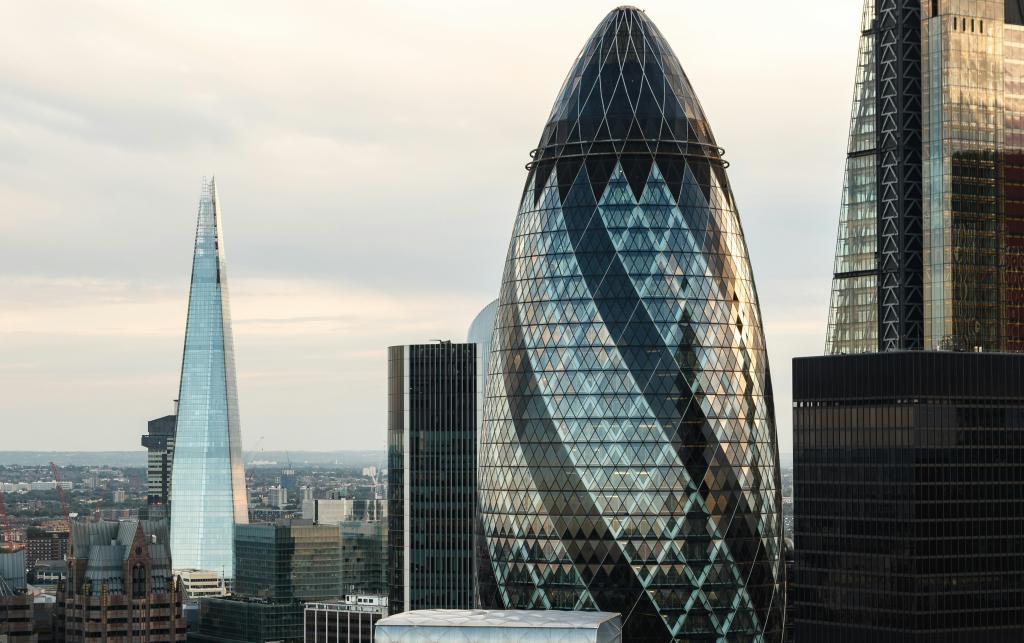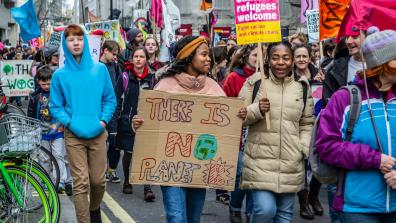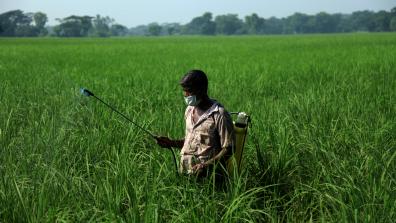When food becomes a gambling game

Over the last five years, food prices have surged globally. Wheat prices peaked in 2022, pushing the cost of a loaf of bread up by 28% in a year. In 2024, olive oil soared to £16 per litre in the UK, while in the United States, egg prices rose by 59% in early 2025.
Why are food prices rising?
Food is becoming more expensive – and scarcer – due to a mix of factors. Climate breakdown is affecting crops in regions that once reliably produced them.1 Record-breaking heat caused drought in Spain and Greece in 2022-23; crops failed, olive oil production declined, and prices increased dramatically.
Meanwhile, industrialised farming methods favour growing single variety crops (monocultures), which degrade soil fertility and biodiversity, causing crop diseases and shortages. Surging US egg prices were linked to unsustainable farming practices, which caused an outbreak of bird flu.

Then there are geopolitical shocks, from wars to the Covid-19 pandemic. In 2022, rising bread prices were linked to the war in Ukraine, which cut wheat exports to Europe, sending ripples through global markets.
However, a crucial, often overlooked factor in rising food prices, which goes largely unreported across the media – including in the case of Ukraine – is the gambling that banks, investors and investment funds do with our food.
Enter food speculation

Banks, asset managers and billionaires are making money from food, land and water, at our expense – driving up food prices for everyone – by gambling (‘speculating’) on our food via commodity futures contracts, agreements to buy or sell a ‘commodity’ (such as wheat) at a fixed price on a future date.
Originally created in the US to help farmers, commodity futures contracts were made between farmers and buyers for future harvests at a fixed price, to protect farmers from the potential financial loss of a bad harvest or market price fluctuations.
But when governments began relaxing financial regulations in the 1980-90s, ‘speculators’ (banks, hedge funds, billionaires) began buying and selling futures contracts to make a profit, buying when they expected prices to go up, in the aim of selling later for a higher price.

Before the 2008 financial crisis, commodity futures markets (where futures contracts are traded) were mostly driven by supply and demand; whereas today, investors and speculators dominate these markets. The number of speculators has grown hugely since the 1980s, meaning gambling on commodity futures contracts has increased significantly, distorting market prices and driving up food prices for everyone.
The overall result is a global food system that is growing more unstable, where the prices of everyday essentials are manipulated and inflated by speculators and are far removed from the realities of farming communities.
The poorest are being hit hardest: 2 In parts of North and Sub-Saharan Africa, food accounts for 45–60% of household spending .3 Even in richer countries like the UK, ordinary people are forced to shoulder the burden of rising food prices, which drives people to prioritise rent and bills over nutritious food. After the 2008 real estate market crash, speculators began pouring money into farmland across Africa, Latin America, and Eastern Europe, with farmland seen as a ‘safer’ investment than property.
Investors began buying up land not just to grow food, but to cultivate crops such as corn for ethanol to power cars, creating two competing markets: food and fuel. This dual demand pushed land prices even higher, drawing in yet more speculators.4
Financialisation of nature
This is not only happening with food. Land, water, forests, oceans (Earth’s biodiversity) are increasingly being seen as financial assets, to be bought, sold and traded to build out global investment portfolios.5 This ‘financialisation’ of life’s essentials has seen everything needed for a dignified life - food, land and water, all fundamental human rights – become just another way to make money.6
For instance, after the 2008 real estate market crash, speculators began heavily investing in farmland across Africa, Latin America, and Eastern Europe, which was seen as a ‘safer’ investment than property. This farmland was used to grow crops for food and to cultivate crops such as corn to produce ethanol to power cars, creating two competing markets: food and fuel. This dual demand pushed land prices even higher, by drawing in yet more speculators, and inflating prices further.
The financialisation of land has also found its way into the housing sector. In the UK, Blackstone, one of the world’s largest asset management companies, has begun buying up housing stock to profit from – part of a wider trend ,7 which has seen investors only concerned with their bottom-line driving up rents 8 , while providing low-quality and unaffordable homes .9 This financialisation of housing is threatening everyone’s rights to secure, affordable housing.
In 2020, California launched the world’s first water futures market, for investors to bet on the future price of water.10 This financialisation of water goes hand-in-hand with growing privatisation. Investors and corporations are buying up water rights – gaining control over the freshwater that we drink. Yet the UK Thames Water crisis shows what happens when essential services are handed over to profit-driven investors :11 mismanagement, mounting debt, high profits for shareholders and rising costs for ordinary people.
As droughts and the climate crisis intensify, treating water as an asset will push prices even higher. Scarcity means increased prices, leaving marginalised communities struggling to cope.
The role of the UK

The City of London, the UK’s financial hub, hosts some of the largest commodity markets in the world, where gambling on food, land, and water drives up prices and availability worldwide.
Meanwhile, City-based banks – including HSBC, Barclays, and Standard Chartered – have funded multinational agricultural businesses’ acquisition of vast areas of farmland globally, 12 while investment and pension funds have fuelled land grabs, particularly in Africa and Latin America. The City provides the legal and financial structures which enable corporations to use legal loopholes and government-backed deals to enforce higher land rents, pushing small farmers and Indigenous communities off their land.
The right to food, land and water
1. Food sovereignty, not corporate control
It’s clear that the current system isn’t working, and that we need a way out. For decades, War on Want and our Global South partners, members of La Via Campesina, have been calling for a radical transformation of the global food system, through food sovereignty: 13 this means protecting our basic human rights to food, land, seeds, and water.14
2. An end to speculation
Food sovereignty movements are calling for a ban on food commodity futures contracts, and an end to food, land and water being treated as financial assets..15 This means that insurance firms, banks, pension funds, and hedge funds should be barred from trading on commodity futures markets or profiting from our essential resources – food, land, water – which are common goods. Major agricultural corporations should be subject to greater regulation and transparency. Prices should reflect real production costs and fair‑trade principles, protecting both farmers and ordinary people globally.
3. Public Ownership of our Common Goods
People‑led land and farming reforms are urgently needed to stop corporate control in countries where speculation and land-grabbing runs rampant .16 These reforms must guarantee small-scale farmers secure, fair access to our common goods; food, water and land, which they need to grow food and feed their communities.





